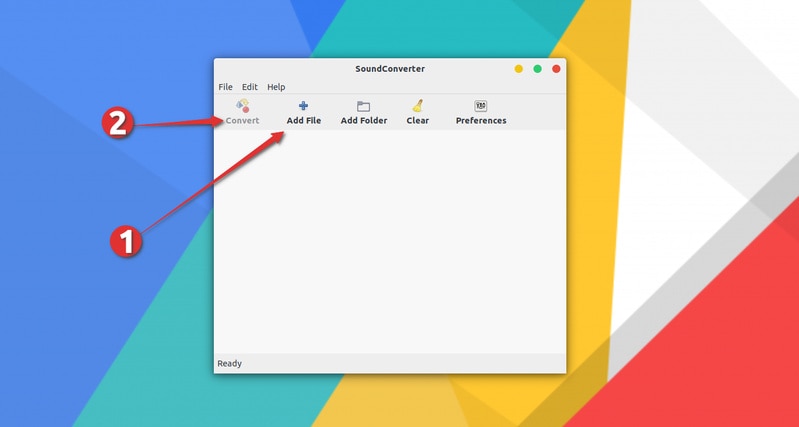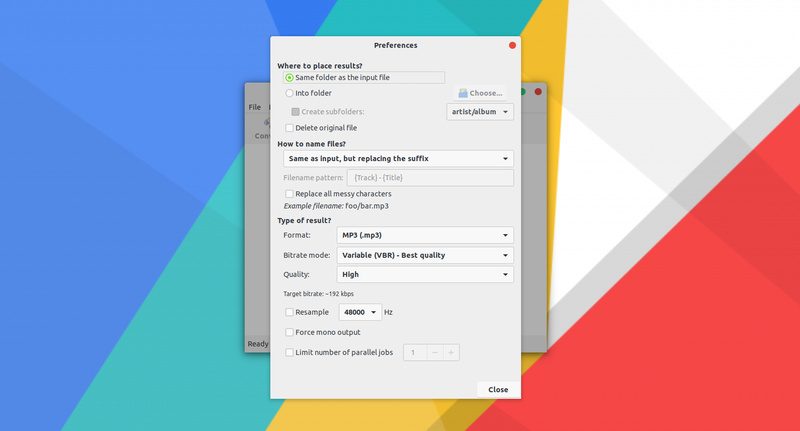
So recently I purchased some DRM-free music. I got it from SaReGaMa, the oldest and the largest music label in India. The downloaded files were in HD quality and in WAV format.
Unfortunately, Rhythmbox doesn’t play the WAV files. On top of that, a single file was around 70 MB in size. Imagine transferring such large music files to smartphones. It would eat up a lot of space unnecessarily.
So I thought it was time to convert the WAV files to MP3, the evergreen and the most popular music file format.
And for this task, I needed an audio converter in Linux. There are plenty of audio editors for Linux but I needed a simple tool for this task.
In this quick tutorial, I’ll show you how can you convert your audio files from one format to another easily with a GUI tool called SoundConverter.
Installing SoundConverter in Linux
If you prefer videos, you can watch this video from our YouTube channel.
SoundConverter is a popular free and open source software. It should be available in the official repository of most Linux distributions.
Ubuntu/Linux Mint users can simply search for SoundConverter in the software center and install it from there.

Alternatively, you can use the command line way. In Debian and Ubuntu-based systems, you can use the following command:
sudo apt install soundconverterFor Arch, Fedora and other non-Debian based distributions, you can use the software centre or the package manager of your distribution.
Using SoundConverter to convert audio file formats in Linux
Once you have installed SoundConverter, search for it in the menu and start it.
The default interface looks like this and it cannot be more simple than this:

Converting audio file format is as easy as selecting the file and clicking on convert.
However, I would advise you to check the default settings at least on the first run. By default it converts the audio file to OGG file format and you may not want that.

To change the default output settings, click on the Preferences icon visible on the interface. You’ll see plenty of options to change here.
You can change the default output format, bitrate, quality etc. You can also choose if you want to keep the converted files in the same folder as the original or not.
There is also an option of automatically deleting the original file after conversion. I don’t think you should use that option.
You can also change the output file name. By default, it will just change the suffix but you can also choose to name it based on track number, title, artist etc. For that to happen, you should have proper metadata on the original file.
Speaking of metadata, have you heard of MusicBrainz Picard? This tool helps you automatically updates the metadata of your local music files.
Conclusion
I have discussed recording audio in Linux previously with a similar tiny application. Such nifty tools actually make life easier with their focused aim of completing a certain task. You may use full-fledged and a lot better audio editing tool like Audacity but that may be complicated to use for smaller tasks like converting audio file formats.
I hope you like SoundConverter. If you use some other tool, do mention that in the comments and I may cover it here on It’s FOSS. Enjoy!

